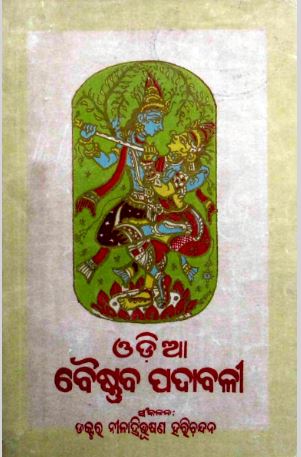The Baishnava Padabali movement refers to a period in mediaeval Bengali literature that lasted from the 15th to the 17th centuries and was marked by an outpouring of Vaishnava poetry, which was often oriented on the Radha-Krishna narrative. Padavali (sometimes written padaabali) means “collection of songs” (pada=short verse, lyric; +vali=plural; collection).
Padavali poetry offers an earthly image of heavenly love that evolved from Tamil Sangam literature’s Agam poetry (600 BC-300 AD) and spread into early mediaeval Telugu (Nannaya, Annamayya) and Kannada literatures. (Dasa sahitya). The religious Bhakti movement, which advocated for an intensely personal sort of devotion based on Ramanuja’s philosophy and opposed caste distinctions and other brahministic strategies latent in Adi Shankaracharya’s theism, swiftly broadened the poetry subjects. During the 13th and 17th centuries, the movement grew and became pan-Indian.
Radha and Krishna’s love on the banks of the Yamuna in Vrindavana, their secret trysts in the forests, Krishna’s charms, including his magical flute, the gopis’ love for Krishna, Radha’s viraha at being separated from Krishna, and her anguish at seeing him sporting with the other gopis are the subjects of the poem. Despite being written by men, much of the poetry is about the feelings of a woman in love.
Book Info
| Book name | Odia Baisnaba Padabali / ଓଡିଆ ବୈଷ୍ଣବ ପଦାବଳୀ |
| Editor | Niladri Bhushan Harichandan |
| No Of pages | 401 |
| Publisher | Grantha Mandira |
| Publication | 1971 |
| Printed At | Surekha Printeres |
| Distributor | NA |

